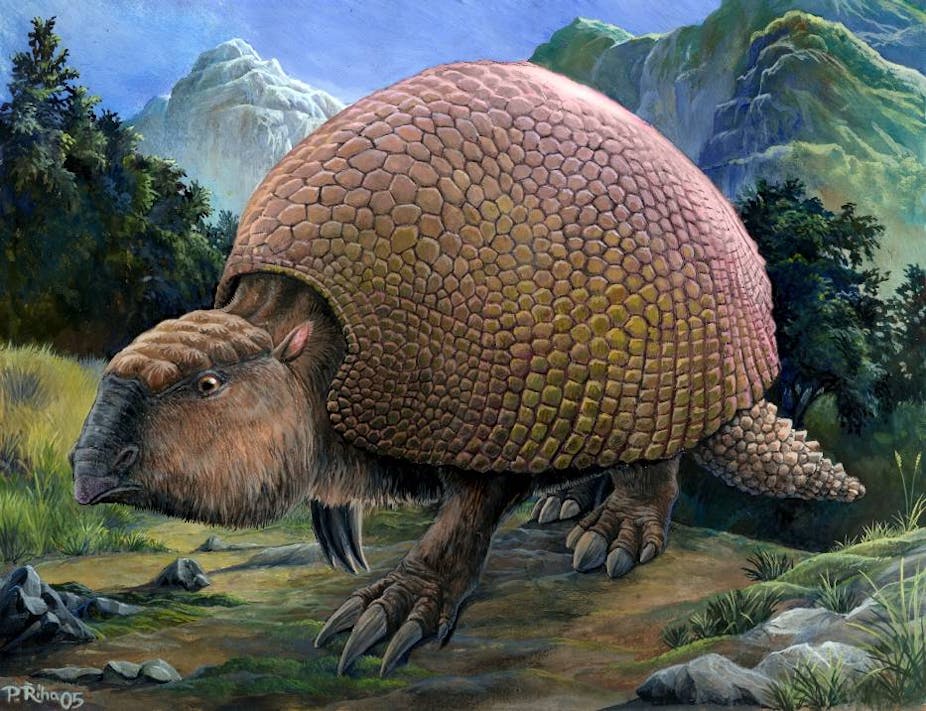Megafauna comprises large, often charismatic animals. They’re usually the first thing that comes to mind when we think of wildlife conservation. Think elephants, rhinos, giant pandas, and tigers.
There is also an abundance of extinct megafauna in the fossil record, such as mammoths, sabre-toothed cats, and dire wolves. Extinct megafauna is not just a fascinating insight into the past– their existence shapes aspects of current ecosystems in interesting ways. For instance, a new study has found evidence that extinct megafauna were important drivers of ecosystem geography in Central and South America.
Megafauna ecology

Modern megafauna animals are often described as ecosystem engineers and keystone species for the important role they have in shaping their surrounding environment. Elephants, for example, are the largest land animals in the world, with the males weighing in at up to 7 tons. They shape their environment in a number of significant ways, including maintaining grasslands and spreading plant seeds. While different megafauna animals have different impacts on the environment, they all play an important role. So, how did animals that lived in the past affect their environment?
This new study sheds some light on that question.
What the new research found
The paper focuses on the Neotropical realm — consisting of tropical Central America and all of South America. The researchers wanted to know how much of the variability in plant traits and ecosystem geography could be explained by extinct megafauna – defined by the authors as extinct mammalian herbivores weighing over 50kg. What they found was that “extinct megafauna left a significant imprint on current ecosystem biogeography”.
The authors found that many of the plant traits that they studied were significantly influenced by the presence of megafauna. These plant traits included wood density, spines on the leaves for defence, leaf size, and more. These findings mean that extinct megafauna ecology is an incredibly important component to understanding plant evolution – one which has been “largely neglected in the ecological literature” according to the authors.
They also found that – like modern elephants – extinct megafauna also likely had a role in maintaining grasslands. They discuss how the extinction events of megafauna may have played a significant role in the shift from grassland to forest ecosystem that have occurred in South America, and state that “megafauna extinctions could largely explain the current prevalence of forests in the continent”.
The paper was published in Nature Communications on 10 January 2022.






